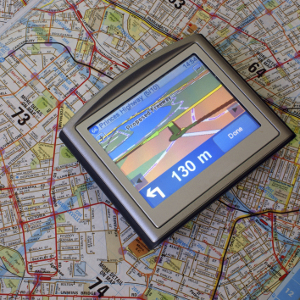 Installing a global positioning system (GPS) in company vehicles and employer-provided phones makes sense on several levels, including for the safety of the employees using them. But if you use a GPS to track the location of employees who work offsite, you might begin to hear rumblings about “Big Brother” spying on workers. However, your business is paying for employees’ time and providing the equipment. Plus, you can argue that tracking employees with GPS serves a variety of legitimate business purposes, such as verifying that your policies are being followed, allowing accurate job costing and providing enhanced security for field workers.
Installing a global positioning system (GPS) in company vehicles and employer-provided phones makes sense on several levels, including for the safety of the employees using them. But if you use a GPS to track the location of employees who work offsite, you might begin to hear rumblings about “Big Brother” spying on workers. However, your business is paying for employees’ time and providing the equipment. Plus, you can argue that tracking employees with GPS serves a variety of legitimate business purposes, such as verifying that your policies are being followed, allowing accurate job costing and providing enhanced security for field workers.
But how much tracking can you legally do without violating the privacy rights of your employees?
The Fourth Amendment to the Constitution protects the right of privacy, part of which is protection from warrantless searches. Generally, courts have upheld that an employee has no reasonable expectation of privacy when using property owned by the employer. Still, many court cases have been initiated by employees when GPS evidence was used against them.
Other lawsuits have been brought when employers placed tracking devices on vehicles that were privately owned. In some instances, the U. S. Department of Justice has defended the use of GPS, noting that GPS tracking of a vehicle on public roads only provides information which could be obtained by visual surveillance.
Currently no federal law prevents employers from using GPS tracking to locate workers in company cars and phones, but laws vary by state. At least 10 states generally prohibit the secret installation of a tracking device on a vehicle for surreptitious tracking, with exceptions for law enforcement.
Here are some best practices to follow:
- Consult your attorney to find out what specific laws on the use of GPS apply in your state and how the state interprets the right of privacy. Also stay on top of changes in federal law relating to tracking.
- Remember, it is generally safest to only install tracking equipment on company-owned property.
- Before installing GPS, make sure that tracking employee movement is serving a legitimate business purpose, such as facilitating accurate billing of clients for employee time or ensuring employees stay safe.
- Only collect information that affects job performance.
- If employees are permitted to take company cars or phones home, consider using tracking devices that can be turned off or scheduled to turn off automatically at the end of the work day.
- Create a formal policy for tracking, which is included in every employment contract. Also include in your policy an acknowledgement page, which employees are required to sign. The policy should state when the tracking devices must be left on.
- Ensure that information gleaned from tracking is kept secure and confidential.
GPS technology can be a valuable asset to your company for a variety of legitimate business purposes. It bears repeating, because laws vary by state, that it’s critical to consult your attorney if you intend to track employee movements based on information produced by a GPS.

